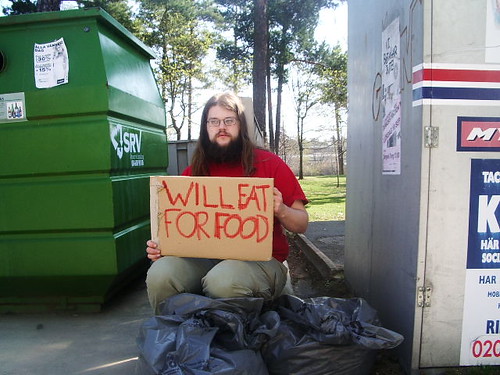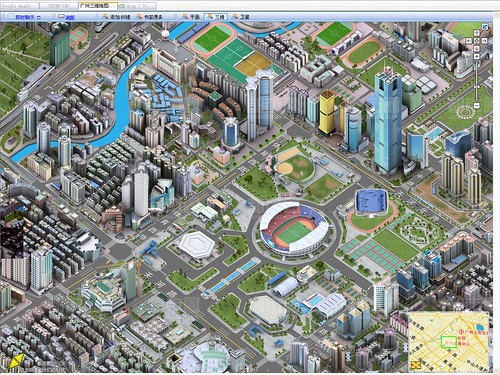Basic run down: the High Frequency Trading algorithms don't likely rely on esoteric mathematical formulas, but rather slightly earlier, probably private information on everybody else's trading behavior. This is borderline Invasion of Privacy...
THEMIS -- Data Theft On Wall Street -- 05.11.10 -
Thursday, May 20, 2010
More disturbing Wall St. information!
Gretl- FREE econometric, number crunching software

gretl (I have no idea what it stands for) is really cool for time series analysis. What caught my attention was its capability for Cointegration, Unit Root tests (frequently applied for statistical arbitrage strategies).
So yeah, check it out!
Friday, May 7, 2010
Food prices- what the hell!

Year to year food price changes according to National Inflation Association,
* Fresh and dry vegetables up 56.1%
* Fresh fruits and melons up 28.8%
* Eggs for fresh use up 33.6%
* Beef and veal up 10.7%
* Dairy products up 9.7%
Wednesday, May 5, 2010
James Chanos on Charlie Rose

For anyone who's missed this a few weeks ago, here's the interview link.
CHARLIE ROSE
It's going to be that bad for China?
JAMES CHANOS
I think it's going to be that bad for the property market in China. Let's be clear: What we're talking about is a world-class—if not the world-class—property bubble.
What makes it a bubble? What we define as a bubble is any kind of debt-fueled asset inflation where the cash flow generated by the asset itself—a rental property, office building, condo—does not cover the debt incurred to buy the asset. So you depend on a greater fool, if you will, to come in and buy at a higher price. We're seeing behavior [we saw] in 2005 in Miami or '06 or '07 in Dubai.
You have said it's a thousand times worse than Dubai. Well, we said that [with tongue] firmly planted in cheek. But then again, according to a news report this week, there's a developer that's going to put in a new Times Square in suburban Beijing, replete with 32 Broadway theaters. You're beginning to hear about these bizarre developments in China, indoor ski resorts similar to what we saw in Dubai.
O.K. But why don't more people say Chanos is right about the bubble? Why are you standing almost alone? Well, I'm not standing almost alone, actually. There were a number of commentators who were writing about overcapacity in '09. But anytime you make a call like this, particularly if you are viewed as having an embedded financial interest in something going down, you're going to be pretty much off by yourself. There are an awful lot of very powerful vested interests, including the Chinese government, that want to keep things going for a while.
What can Beijing do if it buys into the idea real estate prices are approaching a bubble? They've already begun to take some steps. We're seeing jawboning—attempts to talk the market down. That's not having much of an effect according to the latest prices. They've also begun to take some steps such as requiring higher down payments for second homes. But the fact is the game has to keep going. They're on this treadmill to hell because 50% to 60% of GDP is construction. And if they stop construction, you'll see GDP growth go negative quickly. That's not going to happen because in China, people are rewarded at almost every level of government for making their economic growth numbers. The easiest way to do this: put up another building. So they're really hooked on this sort of heroin of real estate development.
Tom Friedman has said never short a country with $2 trillion in foreign currency reserves. The last two economies that had similar foreign currency reserves relative to the size of their economies were Japan in 1989 and the U.S. in 1929. I'll let that be the end of that discussion.
I read today about a major private equity firm with billions invested in the belief that China will be the world's biggest economy by 2035. They wouldn't do that if they didn't think China could handle this housing bubble. The perception seems to be that China will grow out of this situation. But the problem with that argument is the real estate being built is not for the masses. This is not affordable housing for the middle class. This is high-end condos in major urban areas and high-end office buildings. Just to give you an idea, right now construction costs in China are starting to hit $100 to $150 per square foot in some cities. That doesn't sound like a lot by Western standards, but it means a condominium basically presented to you with no floors, no walls, no appliances costs the average Chinese two-income couple $100,000 to $150,000 U.S. That Chinese two-income couple in their 30s probably makes combined $7,000 or $8,000 a year. You do the math. Even if they were making $10,000 to $15,000 a year, they couldn't carry a $150,000 condo. This is very similar to someone making $40,000 in the U.S. at the height of our bubble buying a $600,000 or $800,000 house. We know how that ended.
Give me the timeline you see. Ah, that's the trouble, the timeline. If I knew that, I'd be a rich guy. My guess is this begins to run its course in late 2010, 2011.
So if there is a collapse, what are the ramifications? These things shake out in different ways. If they devalue the RMB, does it bring out a trade war? Does China fry its burgeoning middle class who are becoming real estate speculators? Does it sacrifice the Western investors? I mean, I don't know.
What are you shorting? There are ways to play Chinese companies outside of China. Either they trade in Hong Kong or New York. Probably more important from an investment point of view, this has implications for the people selling stuff to China—cement, glass, copper, steel.
"



